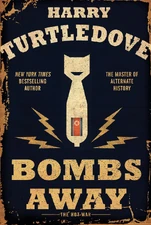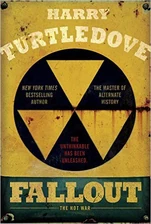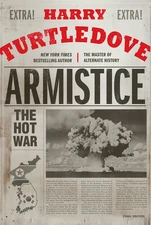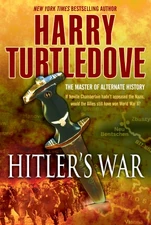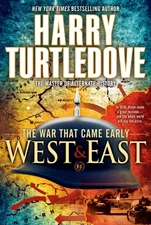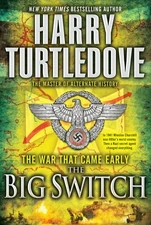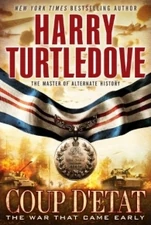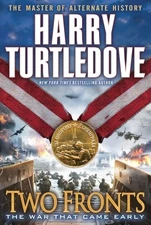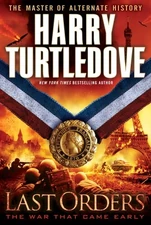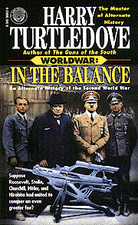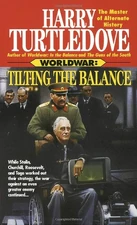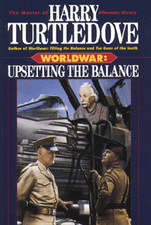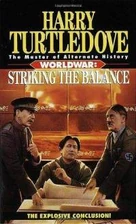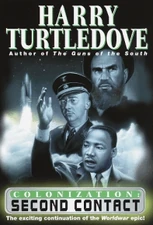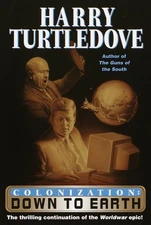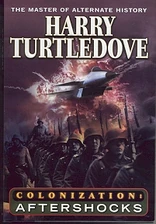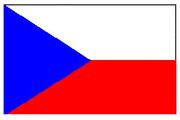
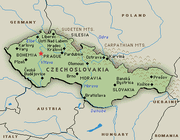

Czechoslovakia (Czech and Slovak: Československo; after 1990: Česko-Slovensko) was a sovereign state in Central Europe that existed from October 1918 (upon declaring its independence from the Austro-Hungarian Empire) until 1992 (with a government-in-exile during the World War II period). On 1 January 1993, Czechoslovakia peacefully split into the Czech Republic (called Czechy, Czechia, or Bohemia in antiquity) and Slovakia.
At the Munich Conference of 1938, Britain and France forced Czechoslovakia to cede the German-speaking region of Sudetenland to Nazi Germany despite existing treaties, in what is commonly known as part of the Western Betrayal. The still-democratic state briefly existed as a basically non-functioning entity at the mercy of its fascist neighbors. In 1939 Czechoslovakia was invaded by Nazi Germany and divided into the Protectorate of Bohemia and Moravia and the puppet Slovak State. Much of Slovakia and all of Subcarpathian Ruthenia was annexed by Hungary.
Literary comment
In several Harry Turtledove works, the Protectorate of Bohemia and Moravia is controlled by Germany, and Slovakia is a separate state. In others, the whole region remains part of Austria-Hungary.
Czechoslovakia in The Hot War
After World War II, Czechoslovak Socialist Republic was one of the last countries in Eastern Europe to fall under the control of the Soviet Union. Its nominal leader was Klement Gottwald, but it was understood he was beholden to Joseph Stalin.[1]
As tensions between the USSR and the United States escalated in January-February 1951, until the outbreak of World War III, the Czechoslovakian military was mobilized and moved to the border between West and East Germany.[2] The United States used an atomic bomb on the Czechoslovakian city of Ceske Budejovice on 15 February.[3] Two days later, the Soviet Union and its allies, including Czechoslovakia, invaded West Germany.[4] On 24 February, U.S. bombers hit Prague and Bratislava with conventional explosives.[5]
In late 1951, Slovakian nationalists staged an uprising and succeeded in taking Bratislava with goal of detaching Slovakia from the Czechoslovakia. Soviet bombers stationed in Prague launched a late night raid, leveling Bratislava with conventional explosive ordinance (the Soviets could not spare an atom bomb). The rebels were able to implement air defenses, including flak, which did succeed in downing several Soviet bombers.[6]
Czechoslovakia in In the Presence of Mine Enemies
Czechoslovakia was occupied by Germany during the Second World War, and was partitioned into several territories of Greater German Reich.
In 2011, Bohemians, protesting against the SS Putsch, waved Czechoslovakian flags in their demonstrations.
Czechoslovakia in Joe Steele
After the Anschluss added Austria to Germany, the combined nation surrounded western Czechoslovakia. Adolf Hitler began demanding the annexation of the Germans in the Sudetenland.[7] In the end Britain and France gave way (despite pledges of support from Joe Steele of the U.S. and Leon Trotsky of the Soviet Union) and let Hitler annex the Sudetenland.[8] Within six months Germany also annexed Bohemia and Moravia, the Czech part of the country, and set up an "independent" Slovakia under a puppet ruler.[9]
Czechoslovakia in The Man With the Iron Heart
Reinhard Heydrich was the Reichsprotektor of the Protectorate of Bohemia and Moravia created from Czechoslovakia. In 1942, Heydrich narrowly avoided assassination at the hands of British backed Czech partisans in the streets of Prague.
After World War II ended, Czechoslovakia, like Poland, began expelling all ethnic Germans from its borders. Heydrich's German Freedom Front was active in Czechoslovakia as a result.
Czechoslovakia in The War That Came Early
Czechoslovakia was the epicenter of the European war that broke out in September 1938. Throughout 1938, German Führer Adolf Hitler demanded the concession of the Sudetenland from Czechoslovakia, with the dual purpose of uniting the Sudeten Germans with Germany proper, as well as provoking a continental war.
However, the governments and militaries of Britain and France were unprepared for conflict. Although France had a military alliance with Czechoslovakia, in September 1938, a conference in Munich was held. On September 30, 1938, without the participation of Czechoslovakian officials, Britain, France, and Germany were preparing to enter into a treaty which would have granted Hitler's demands. (Another ally of Czechoslovakia's, the Soviet Union, was also left out of the negotiations.)
Shortly before the signing, news came that Konrad Henlein, the political leader of the Sudeten Germans, had been assassinated in Berlin by a Czech nationalist named Jaroslav Stribny. Hitler was delighted, and now used the assassination as an excuse to declare war on Czechoslovakia. British Prime Minister Neville Chamberlain and French Premier Edouard Daladier were suspicious of the timing of the assassination, believing it benefited Hitler too neatly. France and Britain then declared on Germany, as did the Soviet Union.
Despite having official allies, Czechoslovakia was left mostly to fend for itself. The Soviet Union could not field many ground troops, as it did not share a border with Czechoslovakia. Nonetheless, the USSR was the staunchest ally Czechoslovakia had. French troops did invade Germany, but the attack was timid at best. Germany, pinched for resources, did not engage the French, instead concentrating its resources on Czechoslovakia.
Czechoslovakia was soon attacked by Poland and Hungary. While neither were official allies of Germany, both opportunistically cared out territory each had claimed prior. Speeding up its defeat, the Slovak region of the country, which had long been agitating for independence, effectively allied itself with Germany, believing, correctly, that Germany would back the creation of a Slovak state.
Czechoslovakia held out for a month, before it finally sued for peace. With Slovakia created, Germany annexed the remainder. The Czechoslovakian government fled to Paris and continued to operate in exile. Czech troops who escaped capture fled into neighboring Poland, where they were in turn transferred indirectly to Paris. Many were put in the lines against the German invasion of France.
Czechoslovakia in Worldwar
The Race recognized Germany's claim to Czechoslovakia as part of the Greater German Reich following the Peace of Cairo in 1944.
This region was heavily industrialized and supported the German war effort in both World War II and the war against the Race's Conquest Fleet. It was also heavily damaged by explosive-metal bomb attacks during the Race-German War of 1965, due to its proximity to Race-held Poland and its use as a staging area for the German invasion of that colony.
References
| |||||||||||||||||||||
| ||||||||||||||||
| |||||||||||||||||||
| |||||||||||||||||
| ||||||||||||||||||||||
| |||||||||||||||||||||||||
